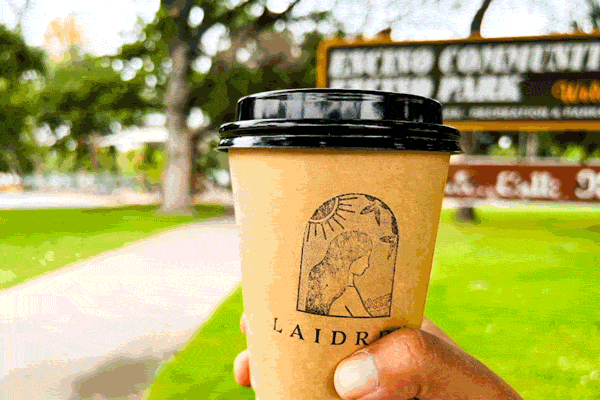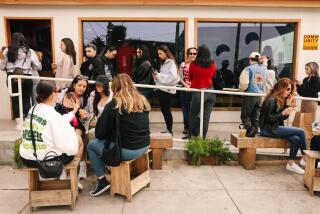Coffee Bar Is India’s Surprising New Gathering Place
NEW DELHI, India — Coffee machines hiss and splutter, spouting foamy cappuccinos and lattes in a hubbub of 40 customers crammed into a small, air-conditioned cafe.
This is tea-drinking India, but the hot new gathering place is the coffee bar.
With a guitar leaning against the wall and a music system belting out Grammy-winning hits, this outpost of Barista, India’s foremost coffee bar chain, is drawing throngs of high school and college students, bored homemakers and pinstriped businessmen.
“Delhi badly needed a place where people could meet informally, without having to spend a packet [a lot],” said Vasundhara Chauhan, a food writer.
For Delhi’s trendy young set, the fad is partly the result of watching Hollywood movies showing ubiquitous Starbucks shops.
“The ambience is welcoming. You don’t have to run up a bill of hundreds to hang out,” said Deepa Kumar, a graduate student at Delhi University.
And, in India’s conservative society, there are few places where young people of both sexes can mingle without being frowned upon by family. Coffee bars are fast filling that niche.
Kumar, who comes from an observant Hindu family, said her parents consider Barista a safe place to spend time with friends.
“My mother goes to the Barista near our home. If it were sleazy, she’d throw a fit,” said Kumar, clad in jeans and a midriff-revealing T-shirt while balancing two frothy concoctions of coffee and ice cream.
India is a big grower of coffee beans, producing 4% of the world’s supply. But it exports nearly 80% of its crop, and the industry has suffered from a global slump in prices. Salvation may come by selling coffee to Indians, who have favored tea for centuries.
“The coffee industry in India has never focused on the domestic market,” said Barista’s managing director, Ravi Deol. “Imagine if even 10% of Indians were to switch to coffee. That’s more than 100 million coffee drinkers.”
At Barista, a typical cup of coffee costs about 40 rupees, or 80 cents. With the minimum wage around 80 rupees a day, that’s too pricey for most of India’s 1 billion people. Tea shops charge as little as 5 rupees for a cup of coffee and 2 rupees for a cup of tea.
Coffee chains use freshly ground Arabica or Jamaican beans, or those grown on the gentle slopes of the Nilgiri Range in India’s southwest.
Barista opened its first coffee shop in New Delhi in February 2000; it now has 85 outlets in 14 cities. The company is brewing plans for 250 shops this year, Deol said.
More to Read
Sign up for Essential California
The most important California stories and recommendations in your inbox every morning.
You may occasionally receive promotional content from the Los Angeles Times.










